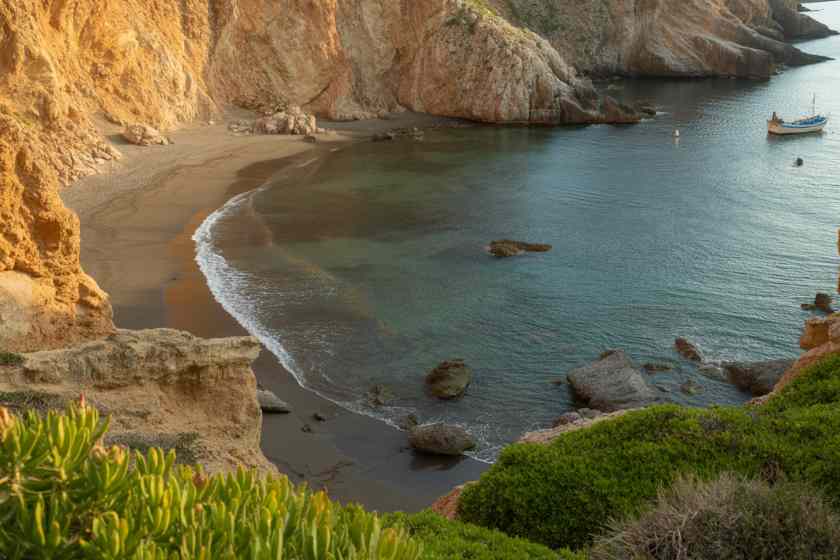New Eco-Tax at Teide National Park Aims to Protect Tenerife’s Heritage and Enhance Tourism

Published on
October 13, 2025

Starting January 1, 2026, Teide National Park in Tenerife, Spain, will be implementing an eco-tax, which will apply to tourists on nature trail activities in the park. Teide National Park is the most visited national park and is on the UNESCO World Heritage list, which makes tourism control vital to safeguard the park’s natural and cultural beauty. Teide National Park has been facing an increase in the number of visitors, which has consequently caused issues with regard to managing possible overtourism and protecting the park’s biodiversity, thus improving safety and access.
This tax originated from a contract between the Council of Tenerife and the Minister of Ecological Transition of the Canary Islands and aims to make sure the park is a safe and balanced ecosystem decades into the future. Active visitors will be subject to an entrance fee, which varies between 25 euros and 30 dollars depending on the activity they are engaged in. These changes will go into effect in 2026.
The Eco-Tax: A Step Towards Sustainable Tourism
Teide National Park is home to iconic Mount Teide and has always captivated outdoor lovers and those eager to observe Tenerife’s singular volcanic panorama. With millions of tourists visiting Teide National Park each year, there is considerable concern over the negative effects of mass tourism.
The eco-tax is designed to solve these problems by managing the number of visitors to the park, limiting the extent of the environmental harm, and preserving the park’s sensitive ecosystems. The funds collected through the eco-tax will be utilised for the park’s conservation purposes, such as wildlife protection, development of park infrastructure, and enhancement of the users’ experience.
In the context of the growing interest in eco-tourism, there is a greater opportunity for the Teide National Park to implement eco-friendly policies. The eco-tax is part of the Eco Islands initiative, which aims to maintain eco-friendly tourism and safeguard the islands’ rich nature.
Improving Visitor Safety and Overall Experience
Beyond environmental protection, the eco-tax will be allocated to enhancing visitor safety. Teide National Park has its share of less forgiving hiking routes, the most notorious being the Mount Teide summit hike, which can be a real challenge for novice walkers. The eco-tax will help defray costs related to the upkeep of the trails, installation of signs, and the implementation of safety measures aimed at risk mitigation for the hikers.
This sits well within the burgeoning global concern of safe tourism and the need to make sure that patrons of world-renowned icon site are not only protected, but are also able to freely access the world over. The eco-tax will be directed towards remediating infrastructure that will broaden access to the park and enhance the eco-tax process to support a positive visitor experience.
In addition, the eco-tax has the potential to control the throughput of tourists within certain zones of the park at any one time, thereby decreasing the congestion on overused trails and allowing the visitors a more serene and rich experience.
Safeguarding Teide’s Unique Ecosystem
Teide National Park has unique plant and animal life that is found nowhere else on Tenerife or the surrounding area. This area has some rare plant life and birds, and some rare types of insects and other animals all of which, in some cases, are only found in this area. It is true that the continual increase of the people has the potential to create negative consequences on the ecosystem of the area and the habitats of the unique and fragile animals in the region.
The eco tax is designed for the conservation and restoration of biodiversity, including the management of habitats and restoration of biodiversity, the monitoring of habitats, the restoration of pristine, and poaching control. It will support the self-sustaining conservation efforts for the biodiversity of the area to enable to park so that the stunning beauty can also be appreciated. This will also protect the delicate balance of the ecosystem.
These will help support the ongoing research and critical conservation efforts in this area. Additionally, the income generated will impact the underpinning objectives of the area. It will ensure Teide National Park continues to be a UNESCO World Heritage Site, and also one of the priceless resources of the Canary Islands.
A New Form of Tourism in Spain
The eco-tax for Teide National Park on the island of Tenerife is part of a wider initiative in Spain and the Canary Islands to implement sustainable forms of tourism. With demand for eco-friendly tourist destinations and services rising, destinations in Tenerife and the Canary Islands are actively promoting tourism that respects the natural environment.
The introduction of eco-taxes in other regions of Spain and beyond will draw lessons from the Teide National Park initiative. Teide National Park will not only protect and preserve its natural treasures, but will also become a blueprint that regions struggling to manage tourism will find indispensable.
Use of Funds from the Eco-Tax
The new tax will streamline and simplify the fee structure for visitors who plan to access Teide National Park. Payments for adults will go for EUR 25, while children will only pay EUR 15. National soldiers and residents of SADC countries will pay lower fees than adults and children. Discounted payments are also available for certain educational institutions, especially for children, to rope in children for the learn-travel initiative.
Visitors entering the park will have to pay an eco tax, and they will be given explanations about how their tax payments assist park management in custodial conservation issues. Such communication will allow tourists to develop a personal bond with the conservation activities, and this may motivate them to adopt more ecologically sustainable travel habits.
Conclusion
Charging an eco-tax on Teide National Park on the island of Tenerife constitutes a substantial advance in the sustainable tourism initiative for the Canary Islands. The eco tax will help manage the number of visitors, improve their safety, and help conserve the park, making sure Teide National Park remains the number one choice for hikers and nature lovers, while also protecting the natural landscapes for the generations to come.
link





